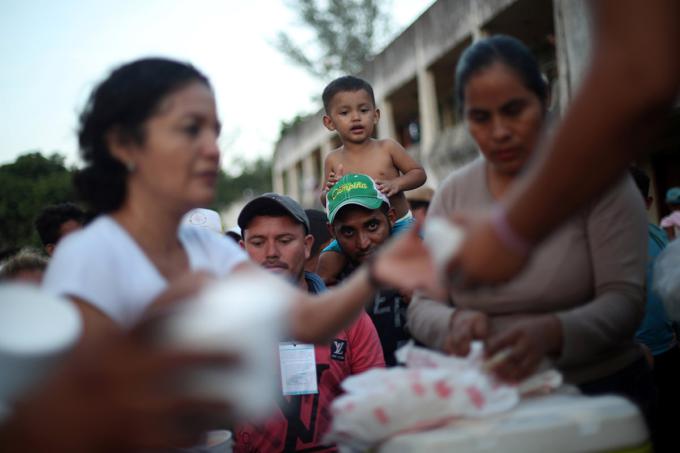
Faith
. . . In a deeply profound way, love is not efficient. It is best served in the intimate doses that are personal opportunities for sisters and brothers in Christ to see each other, to respond to each other's needs, to learn the aches of each other's' hearts, and to believe that simple, small acts done with love make a difference.

Silecchia
It happens all year -- the requests for donations for all manner of charitable causes.
Pleas come in the mail from children's hospitals, medical researchers, religious communities, and educational institutions seeking funds to further their missions.
Television ads, set to melancholy music, beg for contributions to end world hunger and save abandoned animals.
Celebrities lend their names to fundraising campaigns and telethons for the causes they embrace and the issues they champion.
Emails pour in from every charitable organization, seeking resources to expand -- or to survive. In the week of "Giving Tuesday," the promises of matching contributions and competitive giving takes on an energy all its own.
At nearly every Mass, second collections seem to be taken up to aid victims of natural disasters, support those in need at home and abroad, and fund education and welfare activities of all kinds.
It can, at times, seem overwhelming.
Whether we write checks, enter our credit card number on a website, respond to a solicitation call, or drop some folded bills in a collection basket, the array of needs we are invited to meet seems endless -- and, many times, impersonal. Often, convincing potential donors of the enormity of a problem, the depths of the despair and the vastness of the need can seem to be the most effective way to jolt them into a response. In this, though, it can become too easy to forget the individuals on whose behalf the help is sought. It can also become too easy to do nothing when it seems like any individual response is too small for problems so big.
I have noticed, however, that this seems to change at Christmastime. Certainly, the end of the year spurs fresh large-scale outreach to those who may want to take advantage of charitable tax deductions while time remains. Yet, it is at Christmastime that requests for help become more personal.
There are Christmas trees in the vestibules of so many churches, inviting parishioners to purchase a gift for a child in need. This is not an anonymous request for funding, but a specific invitation to buy a Lego set for a five-year-old girl and a book for a two-year-old boy.
There are sign-up sheets to bake casseroles for parish families in need. Again, this is not a faceless fundraiser to solve world hunger, but a specific recipe to prepare a simple meal for a neighbor.
In a season celebrating the birth of a child, crisis pregnancy centers seek infant clothing and cribs, and donors respond as they recall an infant in swaddling clothes, lying in a manger.
Local shelters continue to seek monetary contributions, but they also solicit the warmth and care of volunteers who will serve hot food at holiday dinners for those who have no place to call home. Christmas concerts at nursing homes bring young singers into the life of those who need the gift of cheer and joy more than they may any other gift.
Families are encouraged to adopt families in need and offered the chance to purchase the essentials for a holiday meal. Food drives in schools, supermarkets and neighborhood associations invite shoppers to purchase extra grocery items for neighbors when they are shopping, with love, for their own families
These small gestures do not solve the big problems of the world. In practical terms, they inefficiently ignore the economies of scale that drive larger campaigns.
Yet, in a deeply profound way, love is not efficient. It is best served in the intimate doses that are personal opportunities for sisters and brothers in Christ to see each other, to respond to each other's needs, to learn the aches of each other's' hearts, and to believe that simple, small acts done with love make a difference.
Soon, in our Christmas songs we will sing of a Child with "no crib for a bed" and "a Child, a Child [who] shivers in the cold." Soon after that, when January comes, giving can too easily become more impersonal again. But, perhaps the inefficient, personal love we are invited to share at Christmas will linger behind and be a new way of giving in ordinary times.
- Lucia A. Silecchia is Professor of Law and Associate Dean for Faculty Research at the Catholic University of America's Columbus School of Law.
Comments
Comments Policy
Recent articles in the Faith & Family section
-
Giving in Ordinary TimeLucia A. Silecchia
-
Sunday Scripture readings, Dec. 8, 2019: Surprise, surpriseKevin Perrotta
-
Does marriage transcend death?Jenna Marie Cooper
-
Speak, Lord!Archbishop Richard G. Henning
-
Heads upScott Hahn


















